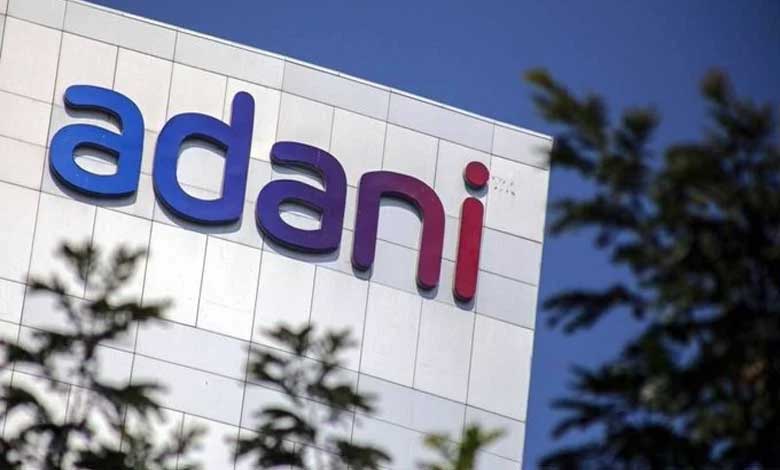Adani Bribery Scandal: Gautam Adani Allegedly Offered Rs 1,750 Crore Bribe to Andhra Pradesh Official
The allegations, which were revealed in a New York court filing, claim that Adani, along with his associates, engaged in a bribery and corruption scheme to secure lucrative solar energy contracts in India.

New Delhi: Gautam Adani, the billionaire chairman of the Adani Group, has been accused of offering a massive bribe of Rs 1,750 crore (approximately $228 million) to a high-ranking Andhra Pradesh government official, according to recent court filings from US prosecutors.
The allegations, which were revealed in a New York court filing, claim that Adani, along with his associates, engaged in a bribery and corruption scheme to secure lucrative solar energy contracts in India.
The filing has sparked significant controversy and raised serious questions about the business practices of one of India’s largest industrial conglomerates.
Table of Contents
Details of the Bribery Scheme and Alleged Payments
The court documents allege that between May 2019 and June 2024, Gautam Adani and his co-conspirators paid a bribe of Rs 1,750 crore to an unnamed “Foreign Official #1” who served as a high-ranking government official in Andhra Pradesh.
The bribe was allegedly offered in exchange for facilitating the execution of power sale agreements (PSAs) between the Solar Energy Corporation of India (SECI) and Andhra Pradesh’s electricity distribution companies. This deal would enable Adani’s group to sell a massive 7 gigawatts of solar power to the state, the largest amount of any Indian state.
The US prosecutors have revealed that Gautam Adani personally met with the unnamed official multiple times in Andhra Pradesh, including on August 7, 2021, September 12, 2021, and November 20, 2021. These meetings allegedly took place in furtherance of the bribery scheme and aimed to expedite the signing of PSAs under a Manufacturing Linked Project that would benefit Adani’s renewable energy subsidiaries.
The Broader Bribery Network and Impact on Indian Energy Projects
According to the US court filing, Gautam Adani and his associates—Sagar Adani, Vneet Jaain (CEO of Adani Green Energy), and other individuals—offered an additional Rs 2,029 crore (approximately $265 million) in bribes to other Indian officials involved in solar energy contracts.
These bribes were allegedly offered to ensure that state electricity distribution companies executed power sale agreements under terms that would benefit Adani’s subsidiaries and a US-based renewable energy company.
The PSAs in question were reportedly signed between July 2021 and February 2022, covering Indian states such as Odisha, Jammu and Kashmir, Tamil Nadu, Chhattisgarh, and Andhra Pradesh. Notably, the agreement in Andhra Pradesh was by far the largest, with the state agreeing to purchase approximately 7 gigawatts of solar power, a deal that significantly boosted Adani’s presence in India’s renewable energy sector.
Co-Conspirators and International Involvement
The filings also implicate several other individuals in the bribery scheme, including Co-Conspirator #1, a UK citizen residing in Hong Kong, and Co-Conspirator #2, an Indian citizen who held executive positions at the US Issuer (a renewable energy company incorporated in Mauritius). These co-conspirators were allegedly involved in orchestrating efforts to corruptly persuade government officials to execute the PSAs, using a variety of methods, including electronic messaging.
Legal Ramifications and Corporate Impact
In light of these allegations, US prosecutors have charged Gautam Adani, his nephew Sagar Adani, and others with bribery and fraud related to securing solar energy contracts in India. These charges carry serious legal consequences, with the potential for criminal prosecution both in the US and India.
Following the revelation of these charges, the Adani Group’s stock prices have faced significant declines. Shares of Adani Enterprises and Adani Green Energy experienced sharp drops, highlighting the growing concerns among investors over the Adani Group’s future and the potential impact on India’s renewable energy projects.
Adani Group’s Response and Future Outlook
As of now, the Adani Group has yet to issue an official statement regarding the allegations. However, the serious nature of the charges is expected to have significant ramifications on both Adani Group’s business operations and its reputation.
The company has been under scrutiny for some time due to its aggressive expansion into various sectors, including energy, infrastructure, and mining, which has made it a key player in India’s economic landscape. However, these new allegations add to a growing list of controversies surrounding the group, including concerns over corporate governance and the role of government officials in facilitating such massive deals.
The Impact on India’s Energy Landscape
These developments are particularly concerning in the context of India’s energy transition and its efforts to boost its renewable energy sector. Adani Green Energy, one of the group’s key subsidiaries, has been a major player in India’s solar power market, and the alleged bribery scheme raises questions about the fairness and transparency of solar energy contracts in India.
With billions of dollars in investments tied to renewable energy projects, the allegations could have a ripple effect on the industry as a whole.
Conclusion: Ongoing Investigations and Political Repercussions
The bribery and fraud charges against Gautam Adani and his associates are likely to have far-reaching consequences for both the Adani Group and India’s political landscape. As investigations continue, there will be increasing pressure on the Indian government and Indian regulatory authorities, including the Securities and Exchange Board of India (SEBI), to ensure accountability in the business practices of one of the country’s most influential conglomerates.
The US prosecutors’ filing and the subsequent legal action have intensified the political debate in India, with opposition leaders calling for a thorough investigation into the allegations and for greater scrutiny of Adani’s relationship with the Indian government. How the case unfolds will likely play a significant role in shaping the future of Adani Group, India’s energy sector, and the broader corporate governance environment in the country.
As these allegations continue to dominate the news cycle, stakeholders are closely watching for any new developments that could further impact Adani’s business empire and the global reputation of India’s renewable energy sector.
